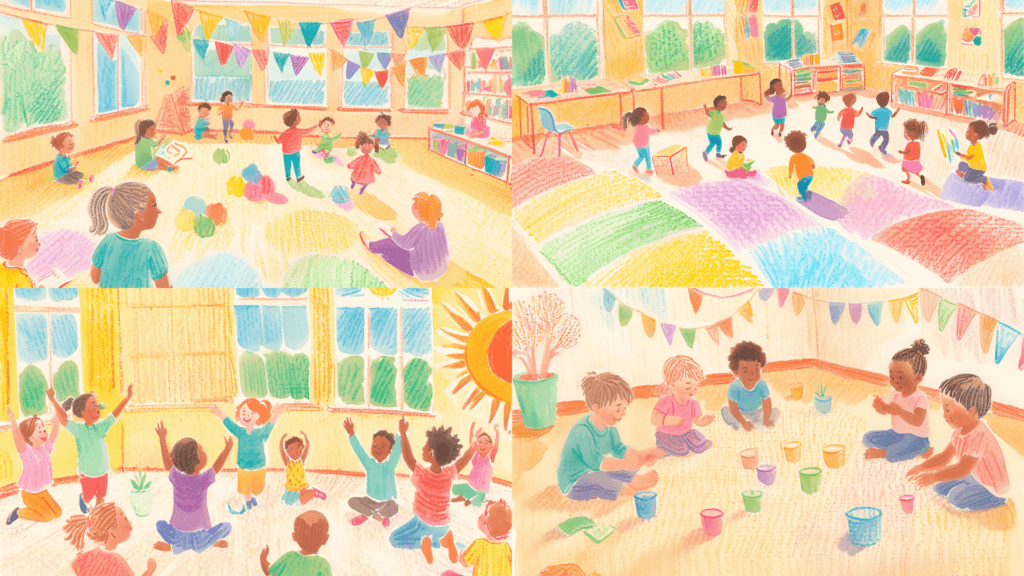Play-based learning has become a buzzword in early childhood education, capturing the attention of educators, researchers, and policymakers worldwide. But why is it gaining such prominence? This teaching approach goes beyond simple play—it is a structured, intentional method that enhances cognitive, social, emotional, and physical development in young children. As research continues to highlight the benefits of play in education, teachers are seeking professional development opportunities to integrate play-based learning into their classrooms effectively.
For educators looking to refine their approach, enrolling in an accredited online teacher training like the ones offered by IECED or Ekya PDI can provide valuable insights into designing engaging, play-centered learning experiences.

Why Has Play Based Learning Become a Buzzword?
Play-based learning is increasingly being recognised as an essential component of early childhood education due to its holistic benefits. The rise in discussions around 21st-century skills, child-centered learning, and neuroscience-backed education has propelled play-based learning into the spotlight. Some key reasons why it is a trending topic include:
1. Backed by Neuroscience
Studies from institutions like the Harvard Center on the Developing Child highlight how play strengthens neural connections, improving memory, problem-solving skills, and creativity. Modern research debunks the traditional belief that play is just recreational; instead, it is a fundamental process for deep learning.
2. Alignment with 21st-Century Skills
Education today is shifting towards fostering critical thinking, collaboration, creativity, and communication. Play-based learning naturally cultivates these skills, making it a preferred approach for modern educators.
3. Growing Demand for Child-Led Learning
There is increasing advocacy for child-led and inquiry-driven learning. Play-based learning aligns with this movement, offering children autonomy in their educational journey while still ensuring structured learning outcomes.
4. Integration into Global Curricula
Leading educational frameworks like Reggio Emilia, Montessori, and the IB PYP promote play-based learning as a core pedagogical strategy. This widespread adoption has contributed to its growing popularity among educators and institutions.
5. Professional Development & Policy Support
Governments and professional development institutes are increasingly offering teacher training programs and online professional development for educators to help teachers implement play-based methodologies effectively.
Why Is Play Based Learning Essential in Early Childhood Education?
Play based learning encourages children to explore, experiment, and discover knowledge through hands-on experiences. It is widely recognised as a critical component of early childhood education due to its impact on various areas of development:
1. Cognitive Growth & Problem-Solving Skills
Play allows children to experiment with different scenarios, encouraging critical thinking and problem-solving. Activities such as puzzles, building blocks, and role-playing stimulate higher-order thinking skills.
2. Social & Emotional Development
Through play based learning, children learn essential social skills such as sharing, cooperation, and empathy. Interacting with peers in a play environment helps them understand emotions, develop self-regulation, and build confidence. Structured teacher training programs can help educators facilitate these social interactions effectively.
3. Physical & Motor Skill Development
Active play, such as running, climbing, and manipulating small objects, improves both gross and fine motor skills. The World Health Organization (WHO) recommends at least 180 minutes of active play per day for young children to support healthy physical development.
4. Language & Communication Enhancement
Play provides opportunities for language-rich interactions. Whether through storytelling, pretend play, or singing, children develop vocabulary, sentence structure, and communication skills. Educators can benefit from online professional development for educators to integrate play based literacy strategies into their teaching.
How Can Teachers Implement Play Based Learning?
For play based learning to be effective, teachers must intentionally incorporate it into their curriculum. Here are a few strategies to enhance early childhood education through play:
1. Create Play-Enriched Classrooms
Design learning environments that encourage creativity and exploration. Include flexible seating, interactive learning stations, and sensory play areas to make classrooms engaging and dynamic.
2. Facilitate Guided Play
While free play is beneficial, guided play ensures that learning objectives are met. For example, educators can introduce problem-solving challenges through storytelling or structured group activities. This approach is explored in depth in teacher leadership certification courses.
3. Integrate Play into STEM & Literacy Lessons
Hands-on activities, such as building structures or conducting simple science experiments, make abstract concepts more tangible. Similarly, literacy skills can be reinforced through word-based games, storytelling, and role-playing.
4. Encourage Role-Playing & Dramatic Play
When children engage in imaginative scenarios—such as pretending to be doctors, chefs, or astronauts—they develop creativity, communication skills, and an understanding of real-world contexts. Have a look at how Ekya Early Years brought this to life! Fun classroom ideas look like this: Funny Hat Day at Ekya Early Years
Professional Development for Educators: Strengthening play based Learning
To implement play based learning effectively, teachers must stay updated with modern pedagogical approaches. The Professional Development Institute for Educators offers accredited online teacher training and teacher training programs to support educators in adopting play based methodologies.
Introducing Our PG Diploma in Early Childhood Education!
We are excited to launch our PG Diploma in Early Childhood Education & Development, designed to help teachers master play based learning techniques. This program covers:
- Child development theories
- Designing play based curricula
- Classroom management strategies
- Assessment techniques for early learners
This diploma is ideal for educators seeking to expand their expertise through online professional development for educators.
Conclusion
play based learning is a crucial element of early childhood education, shaping a child’s ability to think critically, collaborate, and communicate effectively. By enrolling in professional development courses such as a teacher training program or teacher leadership certification, educators can enhance their teaching strategies and create more engaging learning environments.
Take the next step in your teaching career and explore our PG Diploma in Early Childhood Education & Development today!
